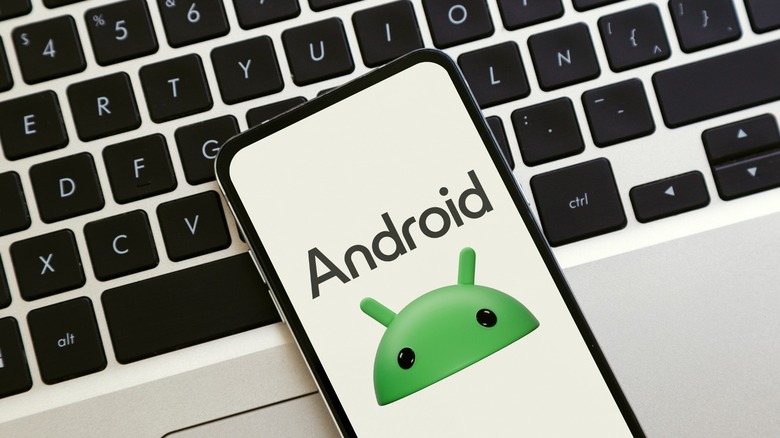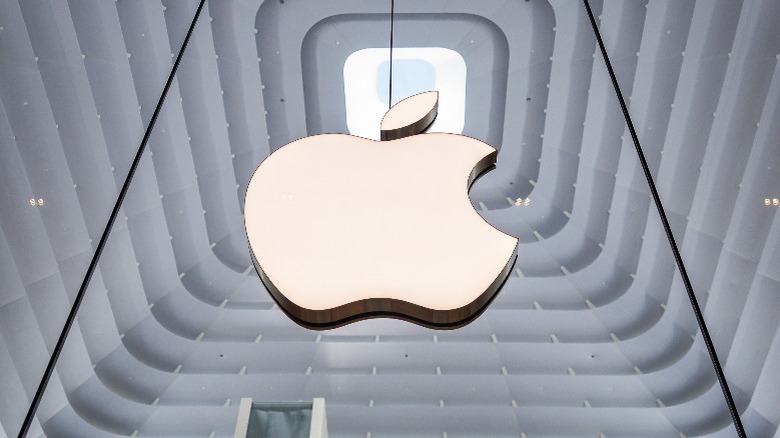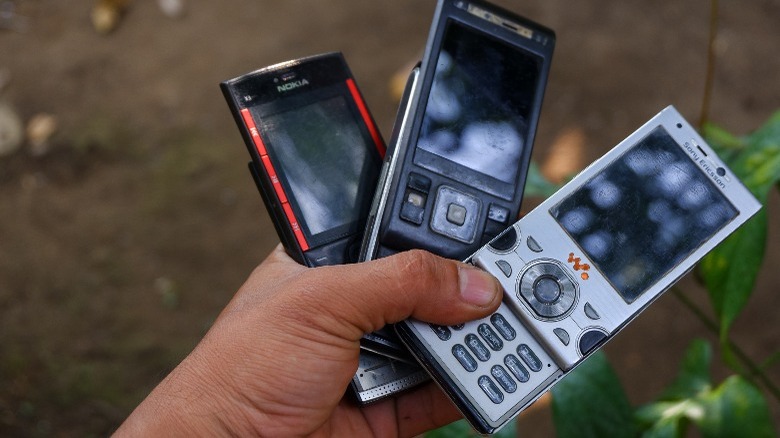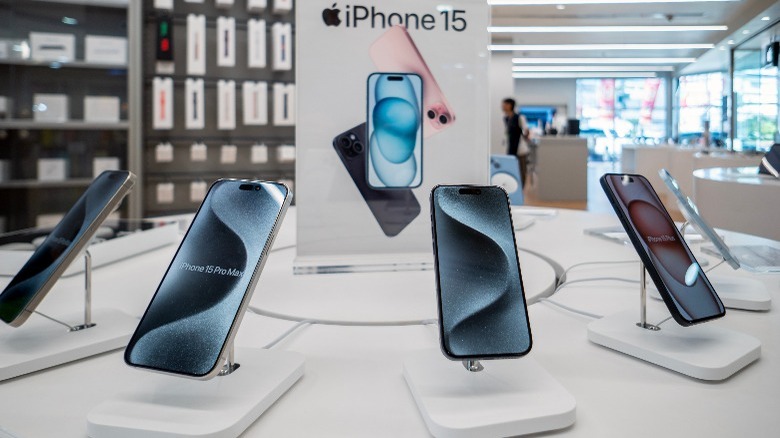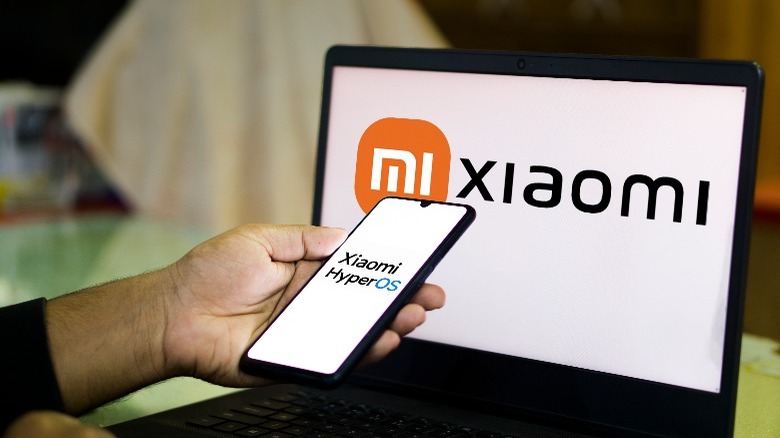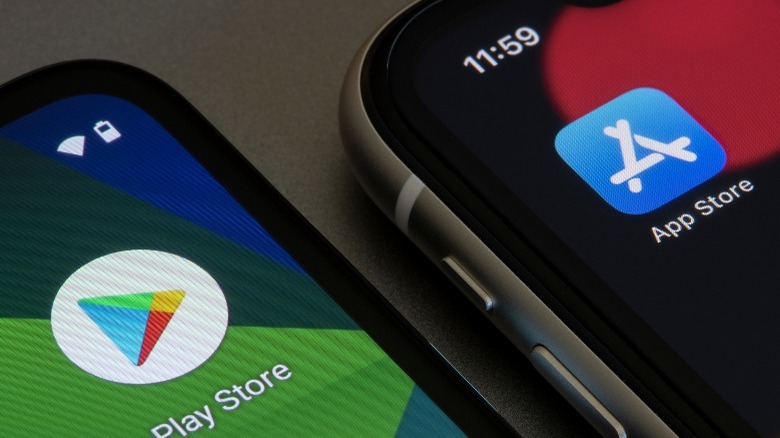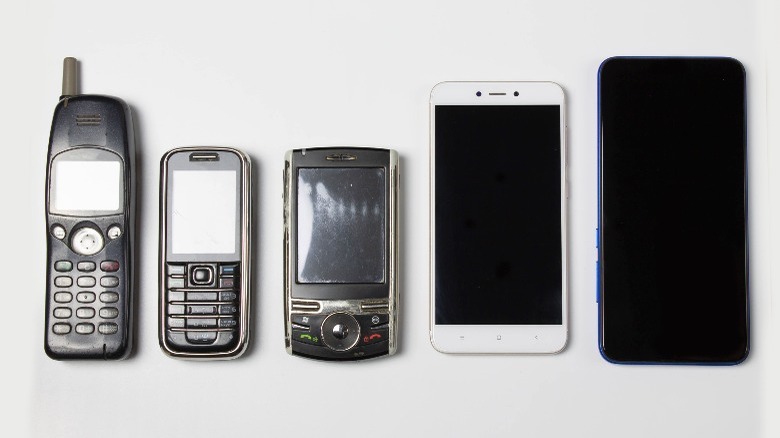10 Ways The World Might Be Different If Android Never Existed
In 2003, way before the iPhone versus Samsung debate was ever a thing, Andy Rubin, Chris White, Nick Sears, and Rich Miner came together to create an operating system for digital cameras, which may sound a little underwhelming. Eventually after realizing that they could do a lot more in a market wider than digital cameras, they pivoted to creating an operating system for mobile phones instead. It might have been a gamble, but it paid off because they struck gold. Google bought Android in 2005 for only $50 million and the rest is history.
Android consistently dominates as the most widely used operating system in the world, making a drastic impact on the mobile landscape and shaping the way we interact with technology as a whole. Still, imagine a world where the Android operating system never came into existence. Maybe the Apple users would rule the world and people might be walking the streets with Motorola's in their hands.
No matter the case, here are 10 ways the world might be different if Android never existed.
Apple's dominance
If Android never existed, it's extremely likely that Apple would have a near-monopoly on the smartphone market, given that it has had a hold on the smartphone market for years. Last year Apple claimed the top seven spots on the list of best-selling phones of the year. Even though Android is way more popular as a mobile operating system, holding 70.7 percent of the market share in the first quarter of 2024, it's important to remember that this is largely because of the fragmentation of Android as an OS, meaning that it is used by multiple phone brands, unlike iOS which is exclusive to iPhones. If Android had never existed, a lot of those brands may have never become so popular, from industry giants like Samsung to up-and-coming favorites like Oppo.
Even with the current competition from Android, Apple regularly manages to cement its position as one of the most popular phone brands in the world. If all of its Android-utilizing competition never existed, it would be difficult for any other brands to go toe-to-toe with them. This could lead to higher prices for iPhones and a slower rate of innovation due to the lack of competition. If Apple ruled the smartphone market, it would inevitably influence software development, app availability, and overall market trends.
Popularity of other smartphone brands
For the past couple of years, the same few brands have occupied the list of the top-selling phones of the year, usually shuffling positions. It's noteworthy that most of these phones run Android as their operating system. If Android never existed, we might not have these phones dominating the market and it could be possible that brands that own a minority of the market share may become more popular as there would inevitably still be people looking for alternatives to iPhones.
It's no doubt that the rise of Android contributed to the downfall of brands like Nokia and Palm. Without Android, Nokia might have further developed Symbian or transitioned to another robust platform, and would have been able to retain the hold they had on the smartphone industry. We would probably see a lot of phones with alternative operating systems, and perhaps we would still be living in a world where almost everyone had a BlackBerry in their pocket.
We might not have the smartwatches we have today
Early on in the evolution of the smartwatches seen today, the basic concept behind them was relatively limited, as they mostly focused on more basic functionalities like telling time, tracking steps, and syncing information from other compatible devices like text messages. But then Android entered the wearables market with the release of Android Wear – now Wear OS – which was the first version of its OS tailored specifically to wearable tech. Android Wear made its real-world debut with the LG G Watch and brought with it a wealth of possibilities. Its open nature allowed developers to experiment and invent, leading to rapid advancements in smartwatch technology.
Android was a big part of the growth of the smartwatch and many of the most popular smartwatches including the Google Pixel Watch, the OnePlus Watch, and the Samsung Galaxy Watch are all developed on Android. Without Android, not only would the innovation in the realm of touchscreen wearables have been a lot slower, but we might not have a lot of the great options we have today.
The open-source movement wouldn't be as prominent
The open-source movement owes a lot to Android. The brand's open-source model, which allows developers to tinker, customize, and innovate, has made a huge mark on mobile software development. Before Android, open-source software was mostly associated with desktop operating systems like Linux. Android then burst onto the scene as the first open-source mobile operating system to be released worldwide, and its openness encouraged developers from all over the world to contribute to its ecosystem. This led to an inflow of apps, custom ROMs, and all-new features that might not have been possible in a closed-source environment.
Android's open-source model has had a huge impact on mobile software development and the promotion of open-source software. Because developers and manufacturers were no longer limited by proprietary licensing fees, they were able to bring their ideas to life. Without Android, up-and-coming developers and startups would have faced higher barriers to entry, which would end up stifling creativity and possibly limiting the range of devices consumers are able to choose from.
Flagship phones would be priced higher
Owning a flagship phone isn't cheap, and if you're looking to own one you should be prepared to spend a pretty penny. But then imagine the smartphone market without Android. It would be easy for players like Apple to slap on whatever price tag they felt like. However, the competition Android brings to the table has done wonders for keeping those prices in check.
Think about it. In the early stages of Android, the smartphone market was relatively small and dominated by a few key players like Nokia, Motorola, and BlackBerry. When Android started to become a household name, it shook things up in a big way. Suddenly, there were better alternatives to the iPhone that didn't require taking out a second mortgage. Brands like Samsung, HTC, and later Huawei and OnePlus, started offering solid devices at more competitive prices, pushing everyone to step up their game.
If not for Android's competitive drive, flagship smartphones might have become even more expensive. Android brought about a wave of affordable phones with flagship-level features and without it, we would have a market where premium prices are the norm, making it extremely difficult for the everyday person to have access to a premium-quality device.
Diverse OS ecosystem
Android is the primary operating system for a lot of smartphones, and this has created a kind of unified ecosystem of devices across various manufacturers. People tend to put 'Android devices' under one umbrella, forgetting that there are actually multiple phone brands that use Android. This has its advantages, such as consistent user experiences across different devices, even if they're by different brands. However, it also means that many companies rely on the same core OS, which can make their user experience feel a little monotonous. Yes, there are usually changes to the UI here and there, but generally, most people know what to expect when they pick up an Android phone.
Without Android, major companies like Samsung, Google and others would likely have managed to develop successful proprietary operating systems. Samsung, for instance, could have pushed its Tizen OS to be a major competitor and been able to create a unique user experience tailored specifically to Samsung devices. Proprietary software is great because it comes with better hardware integration and compatibility. Another plus is that if each company had its own OS, consumers would have a diverse range of mobile operating systems with potentially different features. Nevertheless, it would be harder to share data like images and files between smartphones if each used a different operating system.
Less accessibility to smartphones
It wasn't that long ago that owning a smartphone was considered a luxury that not many could afford. Motorola took the lead with the development of the first mobile phones and some of them were priced as high as $4,000. While the first smartphones were a lot cheaper, a lot of leading brands like Apple didn't offer options that are reasonable for a more budget-conscious consumer base, and many of them still don't. Apple will occasionally refresh the SE line, which is definitely more affordable than its flagship options, but still isn't quite accessible to many people all over the world.
However, the popularity of Android brought with it many affordable options that didn't skimp on quality or features. Android's open-source nature allowed manufacturers to create devices at every price point. Brands like Vivo, Oppo, Xiaomi, and Huawei, which have now been termed "flagship killers” started producing high-quality, budget-friendly devices that made it possible for pretty much anyone to have a smartphone in their pocket. It's unbelievable how Android has made it possible to get a smartphone for under $50. This has made it possible for people to have access to smartphones regardless of their budget.
In a world without Android, high-quality smartphones would likely remain in the realm of premium devices. Apple, with its higher price tags, would dominate, and other brands might not have had the push to create more affordable alternatives. This would widen the digital divide, with fewer people having access to opportunities that are one touchscreen away.
Slower development of IoT technology
The Internet of Things (IoT) refers to the huge network of devices everywhere that communicate and share data with each other anytime and anywhere. Sometimes this occurs even when we don't realize it, though it lends to making our everyday lives more convenient and efficient. Think of your smart thermostat adjusting the temperature based on your daily routine or your car letting you know how much traffic you'll run into on your morning commute.
Android's versatility has made it a popular choice for IoT devices, with its open-source platform allowing manufacturers to create these devices without worrying about the additional cost of developing proprietary software. Considering Android is an extremely popular OS, the framework for integration with other devices already exists.
Without Android, the development and adoption of IoT technologies might have been slower, which would have a negative impact on the use of this technology in industries like healthcare, automotive, and home automation. In healthcare, for example, Android powers remote patient monitoring systems and smart medical equipment, which has significantly improved patient care. In the automotive industry, Android Auto easily connects our phones with our car infotainment systems to improve driving safety and overall convenience.
Different app ecosystem
The Google Play Store has a different app ecosystem compared to Apple's App Store. The Play Store boasts a wider array of developer resources and a more open approach to app approval, which at the end of the day fosters a diverse and thriving app ecosystem. On the other end of the spectrum, Apple is a lot more stringent about which apps it allows to be published on the App Store. This does have its benefits as you can be sure that whatever app you download from the App Store has gone through Apple's rigorous approval process and is safe to use.
However, some of these less-than-friendly policies got Apple into some trouble with Epic Games after they argued against a couple of them such as Apple collecting a 30% commission on all purchases and preventing developers from collecting payments outside of Apple's own payment platform.
Android, on the other hand, gives developers a healthy environment to explore and create, even giving the opportunity for users to sideload and install apps from outside the Play Store, a feature that's impossible with iOS and the App Store. If Android didn't exist, the dominance of the App Store would likely lead to a more controlled app ecosystem. Developers would face higher barriers to entry, and with other brands possibly following suit, the variety of available apps might be limited by more stringent guidelines.
Slower technological innovation
The iPhone versus Android debate has fueled more than just spirited discussions on the internet; it has been the catalyst for many of the cutting-edge technologies we almost can't do without, like facial recognition, multiple camera systems, and advanced AI integration. There's the discourse that floats around the internet when iPhone release day rolls around about how Android tends to release features faster, but Apple sometimes does it better. There is a constant but subtle competition between the two giants as to who can do it first and who can do it best. The intense competition between these two giants has pushed the industry to continue trying to push the boundaries of tech.
Another benefit of Android is its open-source platform and framework for building software made it possible for manufacturers and developers to experiment with new technologies and features more freely. Android is able to do so without spending huge amounts on the cost of developing the foundational software from scratch. If Android didn't exist, keeping everyone else on their toes, software and hardware development in the smartphone industry might have been considerably slower.
